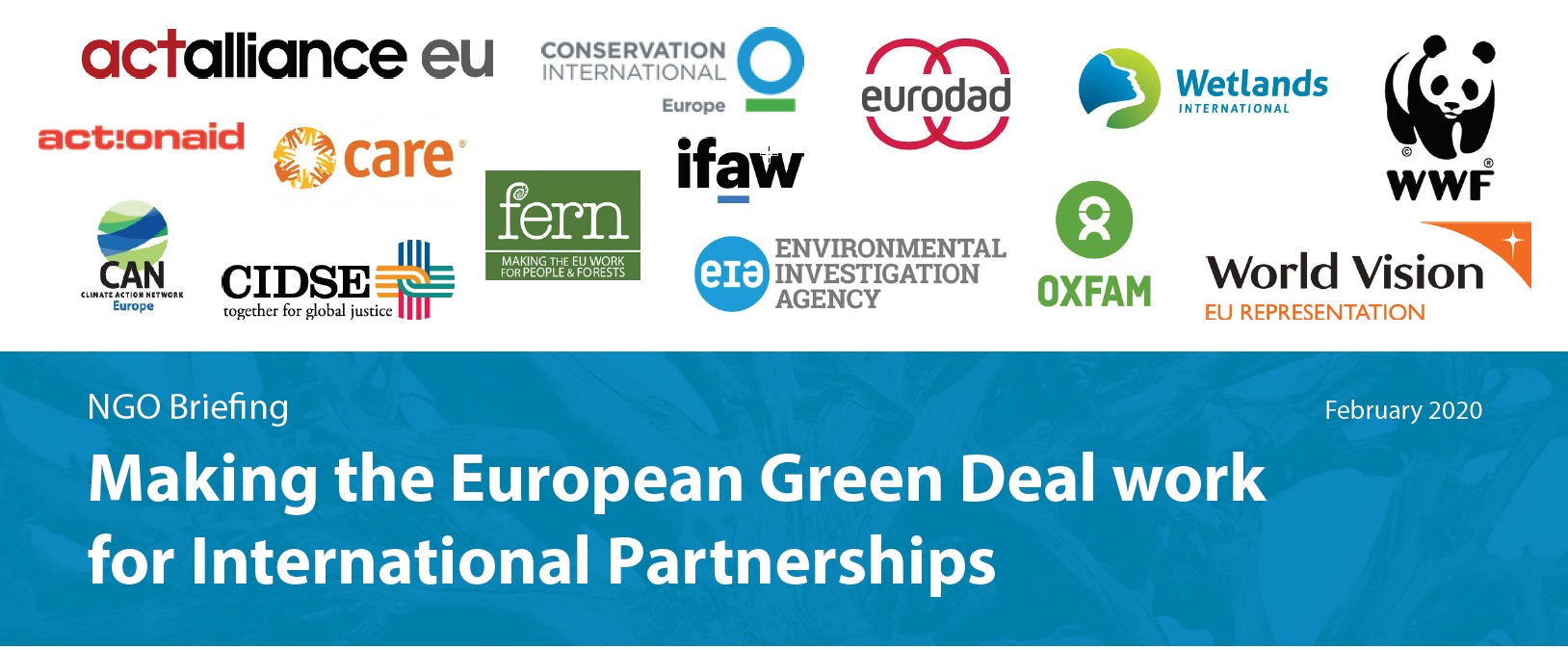
MAKING THE EUROPEAN GREEN DEAL WORK FOR INTERNATIONAL PARTNERSHIPS
The European Green Deal must scale up support for the most vulnerable people in countries disproportionately affected by climate change and environmental degradation.
This is a call of a group of 14 NGOs including Wetlands International, CAN-Europe, WWF-Europe and FERN responding to the publication of the European Green Deal in December 2019. A complete set of recommendations are addressed to the Commissioner for International Partnerships, Jutta Urpilainen.
The recommendations highlight guiding principles for the implementation of the Green Deal and suggest a way forward for the Commissioner and the EU, above all in three main areas.
A summary of the recommendations:
The Commissioner for International Partnerships, Jutta Urpilainen should push for the achievement of the Paris Climate Agreement and the Convention on Biological Diversity emphasising the needs of marginalised groups and countries in the Global South. This means:
- Raising domestic ambition to reduce emissions and the EU’s global footprint
- Supporting an institutional approach to reduce loss and damage finance, and scaling-up financial support for existing and new mitigation, adaptation and environmental action
- Ensuring climate and environmental solutions that include and protect vulnerable groups
2020 is an important year for the EU-AU relationship, due to the Post Cotonou Agreement to be finalised and approved by the end of this year. In addition the EU will engage discussions with African partners towards a new joint strategy to be endorsed at the European Union – African Union Summit in October 2020. The Commissioner should ensure that the final documents include:
- A partnership founded on relevant African conventions and environmental policies, which mainstreams the environment and climate change to achieve Agenda 2030
- A human rights based approach which puts communities at the heart of environmental and development efforts
- An inclusive and holistic approach to ‘NaturAfrica’ initiative aiming at tackling biodiversity loss by creating a network of protected areas to protect wildlife and offer opportunities in green sectors for local populations.
In funding the transition and programming the Neighbourhood, Development & International Cooperation Instrument (NDICI), which is the external financial instrument under the Multi annual financial framework (MFF) that will finance Europe’s external actions from 2021 -2027. The NDICI has three components, a geographic, a thematic and a rapid response component. It has not been approved yet. The Commissioner should ensure:
- Dramatically scaled-up sources of public climate and environmental finance
- Strong development policies to prevent harmful spending for the environment, climate and people.
- A people- and planet- focused financial architecture including strong environmental and human rights safeguards, and monitoring and complaint mechanisms and support for countries to build sustainable domestic resource bases
- A 50% climate and environment spending target in the NDICI
- Strengthened climate and environment mainstreaming and support to NDCs
- Strengthened participation and involvement of civil society in decision making processes in all partner countries
Download the full doc, here:
